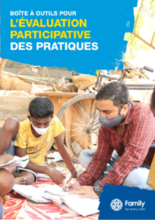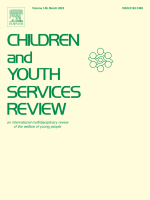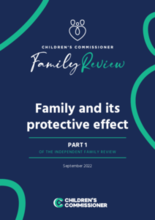Displaying 10241 - 10250 of 10392
Supporting Orphanages May Seem Like A Worthwhile Thing To Do, But An Increasing Body Of Evidence Shows That It Is Harming The Very Children It Tries To Help.

At least 80% of children in orphanages have one or both living parents. Almost all have extended families. With the right support, most of these children could be cared for by their families.

ReThink Orphanages is a global cross-sector coalition working to prevent family separation and child institutionalization by shifting the way volunteers and donors support vulnerable children overseas.

This study details the journey of the Orphan and Destitute Youth in Aftercare Programme in Maharashtra, India. The study was conducted with the orphan youth who left the Seven Aftercare programmes both from Government and NGO-run Aftercare programme. It has discussed their challenges, experiences and support given during and post aftercare while orphan youth started their independent life.
La nouvelle boîte à outils d'évaluation participative de Family for Every Child place les connaissances et l'expérience des organisations de la société civile (OSC) locales en son centre. Elle offre une alternative aux dynamiques d'évaluation traditionnelles, en s'appuyant sur la force des solutions locales.
This paper is a systematic review of studies that examined the implementation and/or effectiveness of the Indian Child Welfare Act (ICWA). ICWA was enacted in 1978 in response to the disproportionate number of American Indian children in non-American Indian out-of-home placements and to enhance the stability of American Indian families and tribes.
This documentary chronicles a Honduran family’s struggle to reunite after being separated at the U.S.-Mexico border three years earlier under the Trump administration’s immigration policies.
This case study is part of a series of case studies conducted in India, Kenya, Moldova and Uganda over the course of 2020-2022 to share information on how COVID-19 has and is affecting family-child reunification, alternative care placement, and offers recommendations for family- and community-based care of vulnerable children in the context of COVID-19 and future emergencies.
The Family Review set out to understand children and families’ perspectives on family life – from what family looks like in 2022 to the challenges facing families.
This virtual presentation on family reunification and reintegration in Rwanda and Cambodia, highlights examples of good practice in family reintegration and lessons learned about the role of government and public policy in fostering family reintegration. The event was hosted by the Transforming Children’s Care Global Collaborative Platform Task Force on Family Reunification and Reintegration on September 20, 2022.



